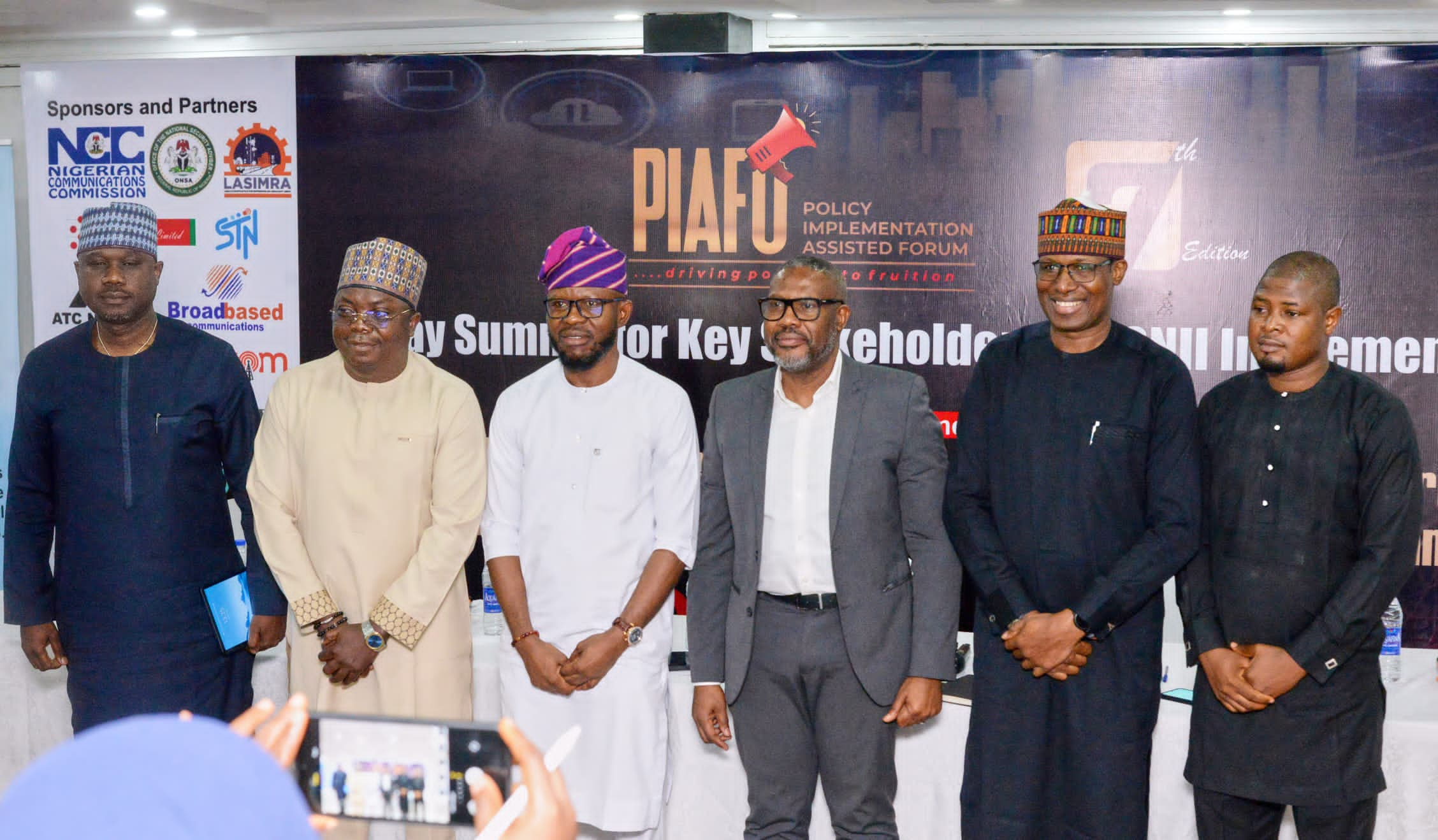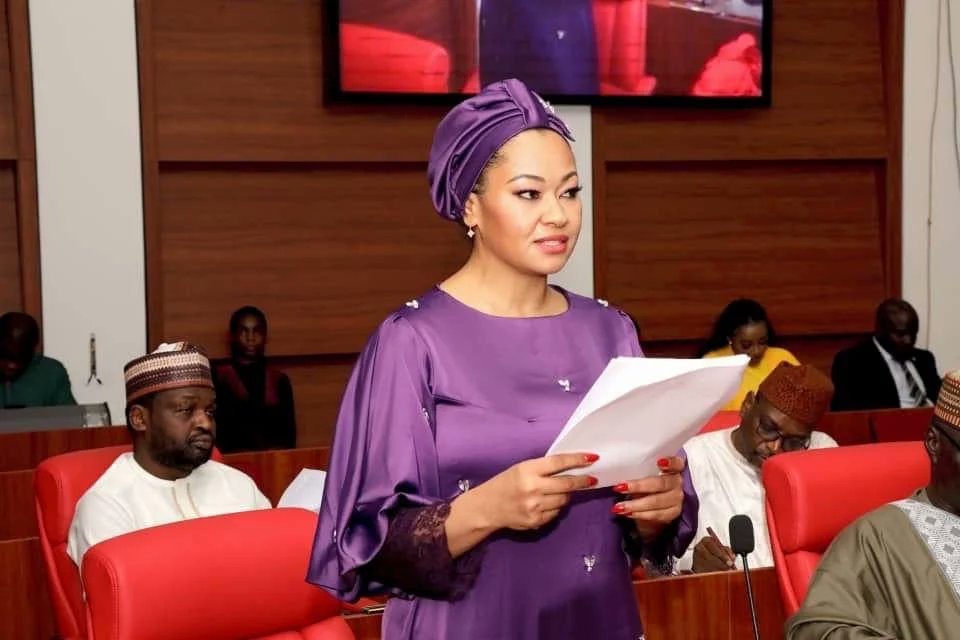News
How NBC is improving on Digital Switch Over to end epileptic broadcasting in Nigeria

The current leadership of National Broadcasting Commission, NBC is not resting on its oars in effort to reform the major components of its services in Nigeria, in line with the prevailing situations.

Therefore, the Digital Switch Over, DSO debuted in 2016 was improved upon by the current Management so as to make it impactful on the services being rendered to the public by broadcast organisations.

The DSO geared towards playing a complementary role to state and zonal offices as well as monitoring and enforcement units all over the country, will be made easier and in conformity with the best global practices.
Nigeria in this area of global recession in second tranche as well as the World Health challenges of COVID-19 in second wave, cannot afford to dwell on the obsolete ways of running the NBC, hence the DSO arrangement and project.
With offices in Lagos, Enugu and Jos, the programme will be expanded by the leadership of NBC to four other states, to enable the take off cover the expectations of many Nigerians in the current order.
With its presence in 7 states capital, the programme of Digital Switch Over, DSO of the agency had gone beyond mere lips service, as Nigerians are now anxious to be linked to the global practices in broadcast industry by the regulators.
This is a fall out of the current Management’s renewed zeal to re-energise and re-inaugurate the new area of broadcast development with a view to meeting the current realities.
In line with the renewed order and zeal to achieve results in the shortest possible time, the Professor Armstrong Aduku Idachaba led Commission has convened stakeholders with a view to chart a new course for the DSO and roll out as soon as possible.
The technical aspects, which is the core of digitisation is already resolved towards positive results, when it is re-launched with a thorough re-examination of both the technical aspects and the coverage.
When rolled out, many channels are expected to be on the platform and will gradually be replicated to other states of the federation, to ensure full digitisation in the course of time.
The DSO when in place, will address many technical and human problems that characterise the operations of the Agency,vand replaced with the technical know-how coverage.
Through its traction, transmission and reception, the Digital Switch Over will ease up monitoring, inspection and adequate coverage of both the regulatory body, NBC and the channels liencensed to operate on the new platform.
The current leadership’s foresight in NBC and determination to achieve results, will also reduce to the barest minimum, the teething problems of broadcasting industry in Nigeria.
Abubakar Yusuf writes from Abuja.

News
Overland Airways commences flights to Bola Ahmed Tinubu International Airport, Minna

Overland Airways, Nigeria’s longest serving private domestic airline, in partnership with Niger State Government, is pleased to announce the commencement of flight services to Bola Ahmed Tinubu International Airport Minna, the capital city of Niger State from Lagos and Abuja, effective April 23, 2025.

Overland Airways will operate three (3) weekly flights on the Minna-Lagos-Minna route and three (3) weekly flights on the Minna-Abuja-Minna route. These flights will be operated on Mondays, Wednesdays and Fridays using Overland Airways’ brand-new Embraer 175 aircraft.

Flights will depart Lagos to Minna at 8am and Minna to Lagos at 3pm. Flights from Minna to Abuja will depart at 9:30am while Abuja to Minna will depart at 2pm.
Capt. Edward Boyo, Chief Executive Officer and Accountable Executive of Overland Airways says: ‘We are excited to commence flight services to Minna from Abuja the Federal Capital and Lagos the Commercial hub of Nigeria. This flight services will facilitate trade, tourism and economic activities in Niger State and its environs and support the Government of Niger State in its quest to attract more direct investments and improve the livelihood of citizens of the State. We thank particularly His Excellency Mohammed Umar Bago, the Executive Governor of the Niger State for his passionate commitment to the growth and development of the State and for making the dream of a connected Niger State come true.”
The Niger State Ministry of Transport in collaboration with the New Niger Development Project (NNDP), jointly stated, “It has been an uphill journey to bring the Bola Ahmed Tinubu International Airport to fruition—from its construction to its operationalization. Today, we are immensely proud to see this dream become a reality. We are honoured to have Overland Airways as the pioneer airline for this project, setting the foundation for expanded air travel connectivity in Niger State. Mr. Governor is particularly proud of this achievement, which aligns with his vision of modernizing infrastructure and boosting economic development in Niger State.”
The Chief Operating Officer (COO) of the New Niger Aviation, Alhaji Liman Katamba Kutigi, says: “This partnership with Overland Airways will ensure regular and robust flight services from Abuja and Lagos to Minna, Niger State. We are thrilled to partner with Overland Airways, which has a reputation for excellent customer service and reliability, and look forward to working together to reposition the aviation sector and economy of Niger State.”
“Known as the Power State, Niger State, the largest state in Nigeria by landmass and host of major hydroelectric power dams and other businesses, requires reliable air services to drive its economic development and Overland Airways is uniquely positioned to meet this need”, says Capt. Boyo.
Overland Airways service offering has evolved from an all-turboprop fleet to a mixed fleet with the introduction of brand-new Embraer E175 jets. In October 2024, Overland Airways renewed its IOSA safety certification for the 5th consecutive time reaffirming its position as a safe and leading African carrier.

News
We need more than CNII Order to secure telecom investments – Experts

Industry leaders have identified important measures to secure telecommunications infrastructures in the country and ensure that investments in the telecoms space are protected.

They argued that as much as the effective implementation of the Executive Order on the Designation and Protection of Critical National Information Infrastructure (CNII) is important, the Order cannot solely guarantee infrastructure safety except certain internal and standardisation issues are first resolved by operators.

Speaking at the 7th Policy Implementation Assisted Forum (PIAFo) Summit on CNII implementation held Thursday in Lagos, the industry leaders highlighted pressing issues such as infrastructure vandalism, unauthorized installations, and cable theft, while proposing actionable solutions to safeguard the country’s critical national infrastructure.
Gbenga Adebayo, Chairman of the Association of Licensed Telecommunications Operators of Nigeria (ALTON), stressed the importance of proper infrastructure maintenance and installation to prevent vandalism and theft.
He highlighted the widespread issue of stolen manhole covers and poles, attributing the problem to poor maintenance practices. “When properly installed, these components are difficult to remove. However, due to negligence, they are often left unsecured, making them easy targets for theft,” he said.
Adebayo also pointed out that community resistance to infrastructure projects has significantly hindered progress. He recounted instances where local communities prevented trucks from accessing sites due to previous unaddressed damages caused by contractors.
“A diesel supplier was blocked from entering an estate because a previous contractor had damaged their property and failed to make repairs. This lack of accountability breeds distrust and delays crucial projects,” he explained.
He urged stakeholders to foster better relationships with communities to prevent such conflicts.
Another critical issue Adebayo identified was the unauthorized installation of infrastructure without government approval, leading to inadvertent damage during road construction projects.
“Government agencies often damage unregistered infrastructure simply because they were not documented in official records. Proper approvals and collaboration with authorities will ensure accountability and protection of critical infrastructure,” he noted.
He called for improved industry coordination to resolve these challenges internally before seeking external solutions that are promised by the CNII provisions.
Echoing these concerns, Tony Emoekpere, President of the Association of Telecommunications Companies of Nigeria (ATCON), emphasised the need for standardisation and better coordination among stakeholders.
He pointed out that Nigeria’s infrastructure challenges go beyond technical issues, extending into environmental and moral concerns.
“We are dealing with a moral challenge. An engineer who switched from diesel to gas generators encountered a new problem—workers began stealing engine oil instead, as they could no longer siphon diesel. These issues require both technical and ethical solutions,” he explained.
Emoekpere argued that standardisation is the key to long-term sustainability. “If infrastructure is deployed in a suboptimal manner, failure is inevitable. We need to establish proper standards that all stakeholders—government, private sector, and the public—can align with,” he stated.
He also emphasized that Nigeria has strong policies, such as local content policies, but implementation remains a major challenge. “We must move beyond discussions and focus on actionable steps, follow-ups, and policy enforcement,” he added.
The importance of addressing cable theft and vandalism was further stressed by Wale Owoeye, CEO of Cedarview Communications Limited.
He described the alarming frequency of cable cuts, which disrupt network operations and drive up maintenance costs.
“Cable theft is a serious issue. Airtel representatives told me they experience a cable cut every six minutes. The assumption that all black cables contain valuable copper leads to reckless vandalism,” he explained.
To combat this growing problem, Owoeye proposed three key approaches, including reorientation, enforcement, and proactive measures.
“We need to engage local communities in their native languages, educating them on the consequences of vandalism. Strict legal penalties, including long-term imprisonment, should be enforced to deter offenders,” he said.
He also emphasized the need for preventive strategies rather than reactive responses. “Prevention is always more effective and cost-efficient than restoration,” he noted.
As a proactive measure, Owoeye proposed the creation of a dedicated fund to support advocacy and awareness campaigns across Nigeria.
To demonstrate his commitment, he pledged to contribute N500,000 quarterly as a seed fund and encouraged other industry players to follow suit.
“This is like planting a seed. With collective effort, we can grow it into a sustainable solution for protecting Nigeria’s telecom infrastructure,” he said.
The speakers collectively emphasised that addressing these challenges requires collaboration among industry players, government agencies, and local communities.
They called for a concerted effort to enforce policies, engage stakeholders, and implement practical solutions that will ensure the long-term sustainability of Nigeria’s telecommunication infrastructure.

News
BREAKING: INEC confirms contact details, begins recall process of Senator Natasha from Senate

The Independent National Electoral Commission, INEC, has confirmed that the representatives of the petitioners seeking to recall the Senator representing Kogi Central Senatorial District have now provided their contact details.

In a statement on Wednesday, INEC’s National Commissioner and Chairman, Information & Voter Education Committee, Sam Olumekun, said:

“The contact address of representatives of the petitioners, their telephone numbers, and e-mail addresses have now been provided in a letter addressed to the Chairman of the Commission.”
He added that INEC has formally notified the senator about the recall petition.
“As provided in Clause 2(a) of the Commission’s Regulations and Guidelines for Recall 2024, a letter has been written to notify the senator sought to be recalled about the receipt of the petition and delivered to her official address,” Olumekun stated.
He further explained that the same letter had been copied to the presiding officer of the Senate and published on the Commission’s website.
Speaking on the next step, Olumekun said INEC would now verify the signatures to ensure that more than 50% of registered voters in Kogi Central signed the petition.
“This will be done in the coming days. The outcome, which will be made public, shall determine the next step to be taken by the Commission,” he said.
Olumekun reassured Nigerians that the recall process would be conducted in an open and transparent manner.

-

 News1 week ago
News1 week agoBill to establish National Cashew Production and Research Institute in Kogi passes first reading in Senate
-

 News1 week ago
News1 week agoReport of attack on Wike’s Port Harcourt residence false, misleading – Police
-

 News1 week ago
News1 week agoShehu Sani debunks Governor Uba Sani’s alleged diversion of LG funds, challenges El-Rufai to publicly tender evidence
-

 News1 week ago
News1 week agoPlateau gov’t expresses concern over violence in Shendam LGA, calls for calm
-

 Politics7 days ago
Politics7 days agoOpposition leaders announce coalition to challenge Tinubu in 2027
-

 Interview1 week ago
Interview1 week agoSenators Natasha-Akpabio saga should have been resolved privately – Rev. Mrs Emeribe
-

 Opinion1 week ago
Opinion1 week agoSule Lamido, PDP, and the politics of defection.
-

 Foreign5 days ago
Foreign5 days agoHouthis declare Ben-Gurion Airport ‘no longer safe’ after renewed Gaza fighting





















